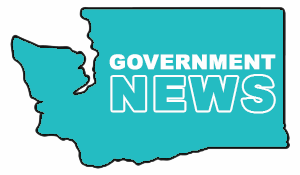
WHAT SHOULD WASHINGTON WORKERS AND EMPLOYERS KNOW THIS WEEK?
WHAT YOU SHOULD KNOW ABOUT...
A "FALL SURGE" IN VIRUS ACTIVITY
A fall surge is apparent in Washington.
A fall surge was anticipated and Washington is indeed seeing a dramatic rise in virus activity. New cases are erupting throughout the northern hemisphere as cooling weather brings people indoors and in closer contact.
Washingtonians have made sacrifices for over seven months, and that progress is now in peril. This dramatic increase requires an equal response.
Immediate, intentional action needed to halt fall surge.
Only immediate collective action can flatten the curve and protect the progress. 2020 has been full of sacrifices, but the choices we make right now will protect or compromise our progress.
Wear a mask, even when it feels weird.
Wearing a mask can feel strange in social settings and around people you know, but that might be the most important time to wear one. It's okay to wear a mask in social situations.
Commit to fewer, shorter, smaller social gatherings.
Shrinking your social circle and skipping indoor gatherings are both important right now. Reducing close contact with others is paramount.
Create a safe workplace.
Workplace safety measures like interpersonal barriers, social distancing, rigorous cleaning, and universal masking are needed to reverse this surge.
Current COVID-19 new case rate 7th-lowest in USA, but progress is delicate.
According to public data gathered by the New York Times, Washington's current new case rate is 7th-lowest in the nation. COVID-19 landed here first, but our state has been among the best in fighting back. Your efforts to limit gatherings, mask up, and conduct safe business have been successful - they must continue to reverse a recent spike.
*****
WHAT YOU SHOULD KNOW ABOUT...
UNEMPLOYMENT AND ESD
What are the differences between all of the unemployment programs?
SharedWork
If a business is under strain and cannot employ workers full-time, SharedWork allows employers to reduce hours and allow workers to collect partial unemployment. SharedWork claims do not count against an employer's experience rating. If you have to reduce hours, this is the best option for the employer and the worker.
Regular UI
Regular UI refers to standard unemployment insurance benefits. This is the traditional unemployment benefit - the only significant change is the temporary waiver of the requirement for claimants to look for a new job through Nov. 9.
Pandemic Unemployment Assistance - PUA
PUA is a federal program to support unemployed workers ineligible for regular UI benefits. Independent contractors, part-time workers, self-employed workers, and some other workers are eligible. See the second page of this document to determine PUA eligibility.
Pandemic Unemployment Extended Benefits - PEUC
PEUC is a federal program to continue benefit payments to unemployed workers that have exhausted their benefits. PUA and UI recipients are eligible to apply. After 26 weeks on regular UI or PUA, workers will receive a notice of final payment for their current program and a prompt to apply for PEUC. PEUC affords an additional 20 weeks of benefits.
Extended Benefits - EB
Extended benefits are available for recipients of regular UI benefits after they have been exhausted. Only regular UI claimants may apply - PUA claimants are not eligible. Claimants that exhaust their benefits should apply for PEUC first and consume those benefits before applying for EB.
Lost Wages Assistance - LWA
LWA is a federal program that pays an additional $300 per week to eligible claimants. To receive the extra benefit, workers must complete some extra questions each week through ESD's eServices interface.
How long does it take for a claim to be processed?
Be careful and accurate when filing for benefits. Claims without issues are processed in 13 days on average. Claims with technical issues are taking up to 8-1/2 weeks to resolve. Contacting ESD may be difficult; agents are focused on resolving the longest-waiting claims.
*****
WHAT YOU SHOULD KNOW ABOUT...
EVICTIONS AND UTILITIES
Moratorium on evictions extended.
The Governor extended a moratorium on evictions last week. The extension included some modifications, including that tenants may be evicted if their behavior is "imminently hazardous" to the physical safety of other persons on the premises.
Utility disconnection moratorium extended.
The governor similarly extended a similar proclamation regarding utility services. Energy, water, and landline telephone companies may not disconnect or refuse reconnection of residential customers over nonpayment. Late fees may not be assessed.
